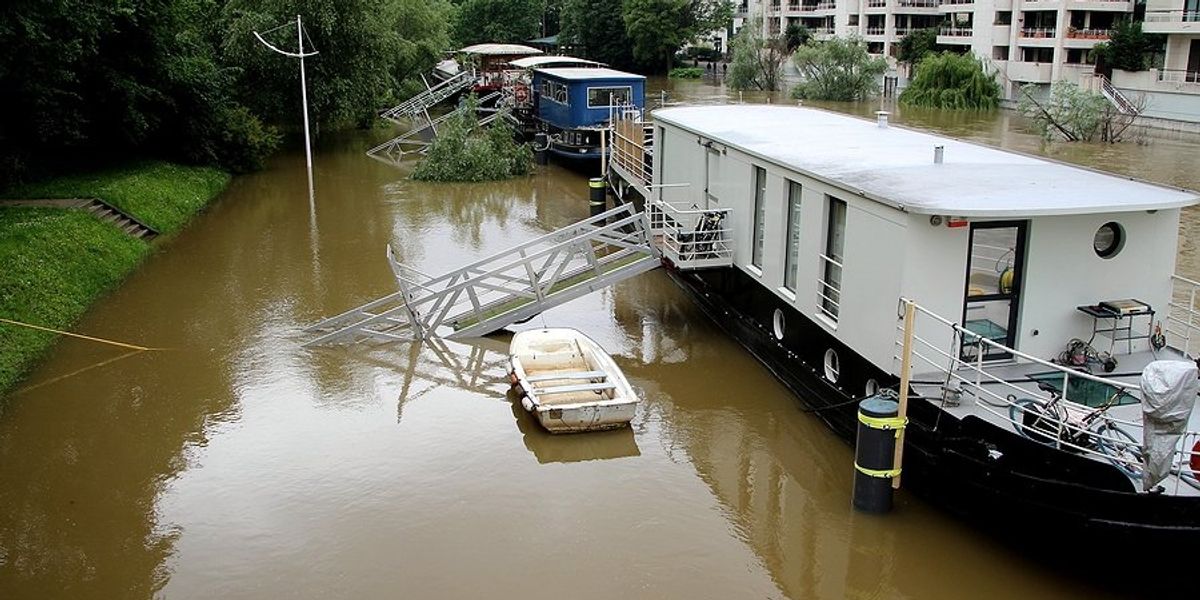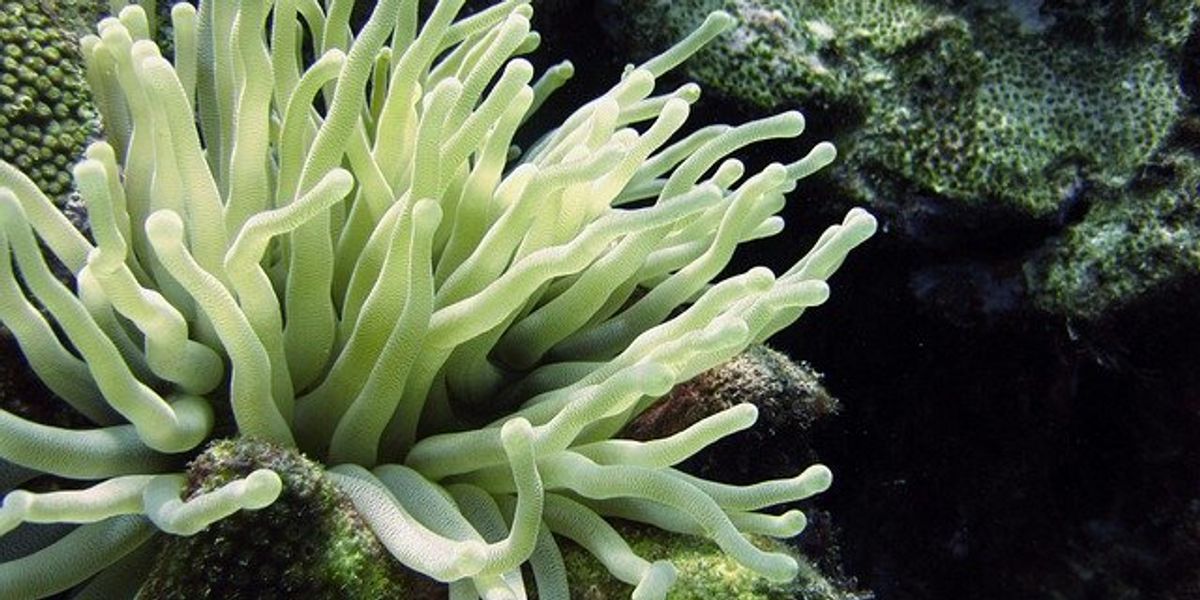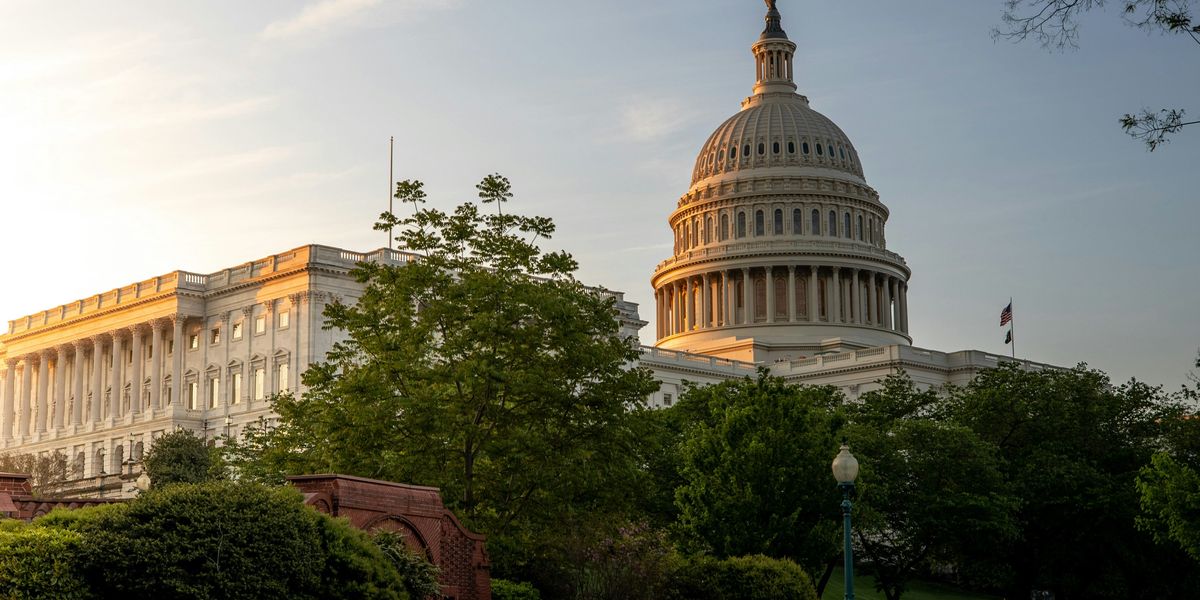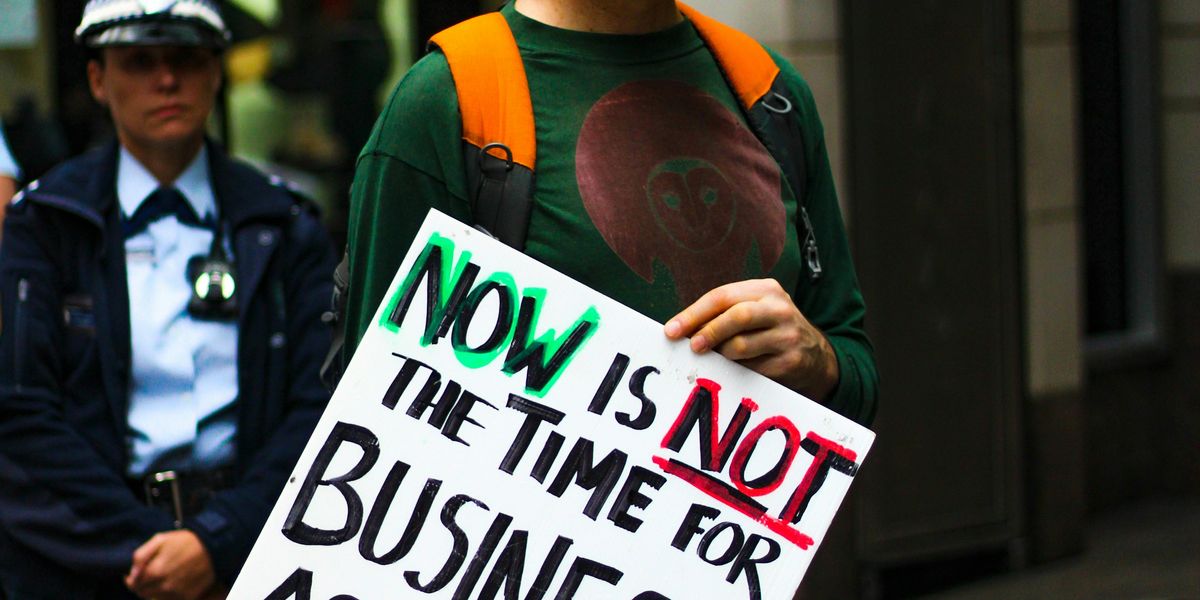petrochemicals
Animals can tell us what pollution is left behind
Preserved birds, fish, and coral are helping scientists reconstruct decades of toxic pollution, filling in environmental data gaps and pointing to hidden health risks today.
In short:
- Researchers are turning to natural history museum specimens to track historical pollution, revealing how chemicals like lead and mercury have saturated both wildlife and human communities.
- A study found that house sparrows living near lead-mining towns in Australia had blood-lead levels that closely mirrored those of children living in the same areas.
- Coral skeletons from Spain’s Mediterranean coast captured fossil fuel pollution spikes from 1969 to 1992, helping pinpoint when human impact on the planet sharply accelerated.
Key quote:
“These specimens that exist in collections around the world have incidentally captured environmental samples from places and times that we can never return to, so we can use them to backfill the environmental record.”
— Shane DuBay, biologist at the University of Texas at Arlington and lead author on the study
Why this matters:
Archives of animal tissue are doing something our governments and industries often fail to do: preserving the evidence. Coral skeletons, like geological black boxes, are chronicling decades of fossil fuel pollution, pinpointing with grim precision when humanity hit the gas on planetary damage. In a world still battling with mercury, PFAS, and microplastics, the past isn’t past. It’s embedded in flesh and bone.
Read more: Why is the chemical industry pitting public health against economic growth?
Trump’s anti-science crusade threatens America’s climate readiness
President Trump is gutting climate science programs across the government, crippling our ability to track — let alone respond to — the unfolding climate crisis.
In short:
- Hundreds of federal climate scientists have been fired or sidelined, and programs essential for tracking global warming — from NASA satellites to U.S. Environmental Protection Agency climate monitoring — are being dismantled.
- The administration justifies the cuts as cost-saving, but many of the targeted programs are inexpensive and critical for everything from hurricane forecasting to public health.
- New rules would give political appointees the power to decide what science the government can use, echoing Trump’s pandemic-era strategy of suppressing data that contradicts his message.
Key quote:
“They hate science because it leads to regulation, so they want to do everything they can to stop science from being used to regulate.”
— Andrew Dessler, climate scientist at Texas A&M University
Why this matters:
Back when COVID-19 was tearing across the country, President Trump had a go-to move: deny the science, then silence the scientists. His administration has been running the same playbook on climate change — and now the damage is emerging. Stripped of data, expertise, and, often, the ability to communicate openly with the public, public health officials, emergency responders, and frontline communities are left trying to navigate the climate crisis without a complete map.
Read more: Nearly one million US deaths from COVID-19—the grim consequences of sidelining science
Tulane faces backlash for silencing researcher exposing pollution and racial bias
A Tulane University scientist has resigned, alleging she was muzzled for exposing how Louisiana’s petrochemical industry harms Black communities through pollution and discriminatory hiring.
In short:
- Dr. Kimberly Terrell resigned from Tulane’s Environmental Law Clinic, claiming the university censored her advocacy and barred her from discussing her studies linking toxic pollution to racial health disparities.
- Internal emails show university officials feared her work would jeopardize political and donor support for a high-profile redevelopment project tied to New Orleans’ historic Charity Hospital.
- Terrell’s research revealed higher cancer rates, premature births, and unequal employment in Black communities near petrochemical facilities, sparking pushback from elected officials and donors.
Key quote:
“I cannot remain silent as this university sacrifices academic integrity for political appeasement and pet projects. Our work is too important, and the stakes are too high, to sit back and watch special interests replace scholarship with censorship.”
— Kimberly Terrell, former director of community engagement, Tulane Environmental Law Clinic
Why this matters:
Here's a story that cuts right to the bone of environmental justice in the South, where petrochemical plants line the Mississippi River with polluting smoke stacks and nearby communities have long been treated as sacrifice zones. It's another blow to environmental justice and academic freedom in the face of corporate and political influence.
Read more:
- “Cancer Alley” residents exposed to more than the lifetime exposure limit for cancer-causing compound: Report
- Op-ed: “I’m sorry, I can’t hear you” — disabling environments in Cancer Alley and the Ohio River Valley
- Community activists plead to be heard through “closed doors” outside nation’s top energy conference
- Lives “devastated’ by petrochemical industry pollution in Texas: Report
- Op-ed: Why is the chemical industry pitting public health against economic growth?
Plastics industry misled public on decades-old recycling tech
The fossil fuel industry has aggressively promoted “advanced recycling” as a breakthrough solution to plastic pollution — even while knowing it rarely works.
In short:
- A new report from the Center for Climate Integrity (CCI) reveals that plastic producers have long known advanced recycling — also called chemical recycling — is neither economically nor technically viable at scale.
- Despite public promises of circularity, most facilities end up burning plastic into fuel, not turning it into new plastic, undermining claims of sustainability.
- Internal documents and past statements show companies were aware of the high costs, pollution, and technological flaws for decades but kept pushing the narrative of innovation.
Key quote:
"The information ecosystem around advanced recycling is totally dominated by the industry itself."
— Davis Allen, investigative researcher at the CCI and author of the report
Why this matters:
Plastic pollution is a public health crisis — linked to cancer, hormone disruption, and environmental degradation. As the public demands action, so-called false solutions like advanced recycling delay real progress and perpetuate harm under the guise of innovation. Rather than closing the loop, these processes more often resemble incineration, releasing toxic byproducts along the way. Burning plastic releases a cocktail of air pollutants linked to asthma, cancers, and endocrine disruption — especially in the low-income communities that house many of these facilities. And still, the narrative of innovation persisted, bolstered by millions in lobbying and slick campaigns promising a “circular economy.”
Read more from EHN:
Multiple Houston-area oil and gas facilities that have violated pollution laws are seeking permit renewals
One facility has emitted cancer-causing chemicals into waterways at levels up to 520% higher than legal limits.
HOUSTON — Multiple Houston-area oil and gas facilities that have previously violated the pollution limits in their permits have recently applied for new federal operating permits or renewals.
These facilities include the Chevron Pasadena Refining facility, the LyondellBasell Houston refinery, and the Chevron Phillips Chemical Sweeny Complex in Brazoria County, all of which are seeking renewed Title V permits.
Title V air permits are required for facilities that are considered major sources of air pollution by the U.S. Environmental Protection Agency. In general, a facility is considered a major source when it emits more than 100 tons of most pollutants or more than 10 tons of hazardous air pollutants, which are known to cause cancer or serious health effects, each year.
There are 1,455 Title V facilities in Texas, according to Texas Commission on Environmental Quality (TCEQ) spokesperson Victoria Cann. This represents more than 10% of all Title V facilities in the U.S., according to data from 2020, which puts the national total of Title V facilities at 12,726. There are currently 88 facilities seeking new or renewed Title V permits in Texas, according to TCEQ.
Chevron’s Pasadena refining facility
Chevron is seeking a renewal of their Title V operating permit for the company’s Pasadena refining facility.
The facility violated the Clean Air Act in eight of the past 12 quarters and violated the Clean Water Act in seven of the past 12 quarters, including elevated effluent water discharges of benzene, ethylbenzene, toluene, and xylenes at levels up to 520% as high as the legal limit, according to the EPA’s compliance database. Benzene has been linked to a number of health problems, including an increased cancer risk and cell disruption. Ethylbenzene, toluene, and xylenes have been linked to short-term impacts like headaches, dizziness, and fatigue, and long-term problems like memory, vision, and hearing loss.
Houston area residents recently gathered to attend a hearing on Chevron’s Pasadena Title V permit renewal. Some attendees shared support for renewing the permit, citing economic and community donations, while others shared concerns about health impacts from the refinery’s operations.
Inyang Uwak, an environmental epidemiologist and research and policy director at the environmental group Air Alliance Houston, said the refinery’s benzene fenceline monitoring levels have been above the EPA action level since April of last year.
While exceeding the action level is not a violation in itself, it does require the refinery to determine a “root cause analysis and take corrective action.” In the past two years, Chevron Pasadena Refinery has exceeded the EPA action level for benzene 18 times.
“I know benzene can be very scary,” Chevron Pasadena Refinery’s environmental manager Steph Seewald said at the hearing, stating that the new data for the first quarter of 2025 should be available soon, and is “trending downward.” Federal data to confirm this is not yet available at the time of publication.
Pasadena Refining’s general manager Tifanie Steele said that since Chevron purchased the refinery six years ago from Petrobras, the facility has made “several improvements” and cited decreases in overall emissions by “investing time and money into improving compliance.”
LyondellBasell’s Houston refinery
LyondellBasell's Title V permit hearing for its Houston-area refinery is scheduled for May 6, 2025, despite an announcement that this facility will soon close.
Violations in the last three years at this facility, according to EPA data, include one quarter violating the Clean Air Act, four quarters violating the Clean Water Act and three quarters violating the Resource Conservation and Recovery Act, which governs the disposal of solid, hazardous waste.
The future of the facility remains unclear, but the company stated it plans to start operations of “circular projects” in 2025. Residents and environmental groups like Air Alliance Houston say they hope this hearing will provide clarity about the company’s future in Houston.
Chevron Phillips Chemical’s manufacturing facilities in Brazoria County
Chevron Phillips Chemical’s second largest manufacturing facility in Brazoria County, which spans across three sites, is also seeking a renewal of their federal operating permit.
According the the EPA, the Chevron Phillips Chemical Sweeny Complex has violated its permits numerous times during the past three years: for one quarter it violated the Clean Air Act, for seven quarters it violated the Clean Water Act, for six quarters it violated the Safe Drinking Water Act, and for five quarters it violated the Resource Conservation and Recovery Act.
The Houston-Galveston-Brazoria area is home to one of the nation’s largest concentrations of petrochemical facilities, accounting for nearly 42% of the nation’s supply. The dense population of petrochemical facilities creates concern about cumulative impacts for communities that live in these regions, which recent studies suggest are often underestimated.
In order to keep community members in the Greater Houston area informed, Air Alliance Houston told Environmental Health News that they maintain a database called AirMail to alert residents of upcoming public meetings regarding permits. The TCEQ has made attempts in the past five years to increase public participation in meetings through avenues like increasing language accessibility, but participation is still lacking.
“Similar to voting, [attending public meetings] is your opportunity to have a voice,” Air Alliance representative Cassandra Cassados Klein told EHN. “We know that civic engagement is a great tool in protecting our air quality.”
US Senate votes to ease regulations on toxic air pollution from industry
In a historic rollback of Clean Air Act protections, the U.S. Senate voted to let polluters off the hook for controlling the most dangerous air pollutants, with the House of Representatives and President Trump expected to follow suit.
In short:
- The Senate voted 52-46 to overturn a U.S. Environmental Protection Agency rule that required constant pollution controls for seven of the most dangerous airborne toxins, including mercury and dioxins.
- The rule, which President Biden finalized last year, had forced over 1,800 industrial sites to clean up emissions that cause cancer, brain damage, and other serious illnesses.
- If the House votes to overturn the rule and Trump signs it, this will mark the first time in the Clean Air Act’s 55-year history that Congress has rolled back protections under the law.
Key quote:
“Repealing this rule would be such a giveaway to corporate polluters. These facilities could increase their toxic pollution without any accountability or oversight.”
— Nathan Park, an associate legislative representative at Earthjustice
Why this matters:
Proponents of overturning the rule say it is burdensome to business. But the action would weaken protections for low-income communities and communities of color living near industrial plants — places that are often already burdened by high cancer rates and toxic exposure. Taking action to scale back Clean Air Act protections is a first for Congress, and a victory for the fossil fuel and petrochemical industries that had lobbied to overturn the regulation.
Read more from EHN:
Federal court allows discrimination lawsuit against Louisiana petrochemical expansion to proceed
A federal appeals court ruled that civil rights groups can pursue their lawsuit accusing St. James Parish officials of racial discrimination in the siting of polluting petrochemical plants in Black neighborhoods.
In short:
- The 5th U.S. Circuit Court of Appeals ruled that the lawsuit filed by Inclusive Louisiana and other groups was timely, reversing a lower court's dismissal over filing deadlines.
- The plaintiffs allege St. James Parish’s land-use policies cluster petrochemical facilities in majority-Black communities, with 20 of 24 industrial sites located in those areas as of 2023.
- The court acknowledged claims that these developments have destroyed access to cemeteries of enslaved people and represent ongoing discrimination beyond a single 2014 zoning plan.
Key quote:
“We have been sounding the alarm for far too long that a moratorium is needed to halt the expansion of any more polluting industries in our neighborhoods, and too many lives have been lost to cancer.”
— Gail LeBoeuf, co-founder of Inclusive Louisiana
Why this matters:
St. James Parish, nestled in Louisiana’s heavily industrialized Chemical Corridor, has become a national symbol of the tensions between economic development and environmental justice. Known widely as “Cancer Alley,” this stretch along the Mississippi River is home to more than 150 petrochemical plants and refineries. For decades, its predominantly Black residents have sounded the alarm about unusual cancer clusters, respiratory illnesses, and the erosion of historically significant land, including burial sites. Despite this, state and parish land-use approvals have often cleared the way for more industrial expansion. The recent court ruling allowing a high-profile environmental justice case to proceed could signal a turning point, giving federal judges the chance to scrutinize how decisions in places like St. James Parish disproportionately impact marginalized communities.
Learn more:



















